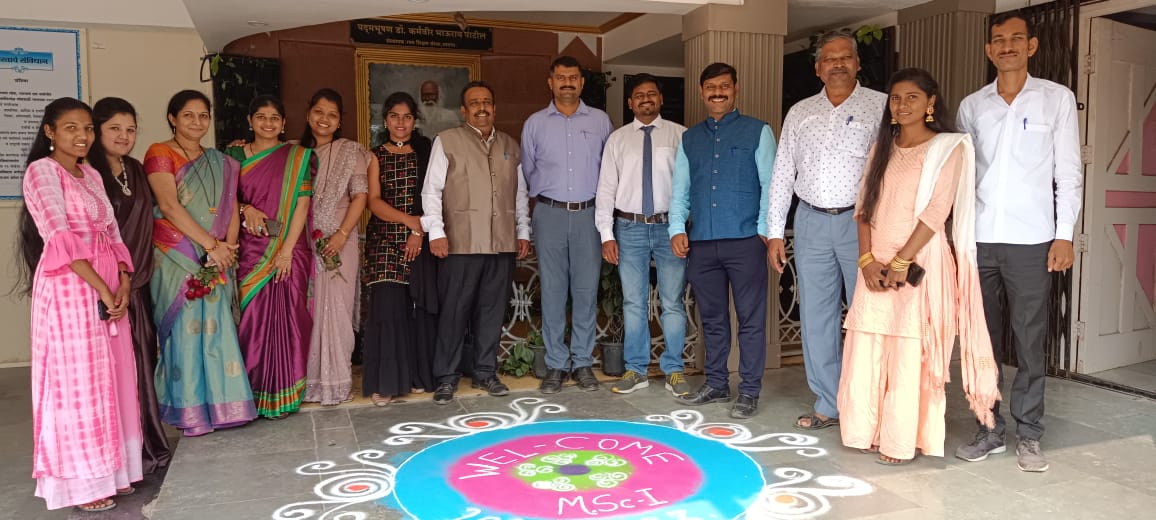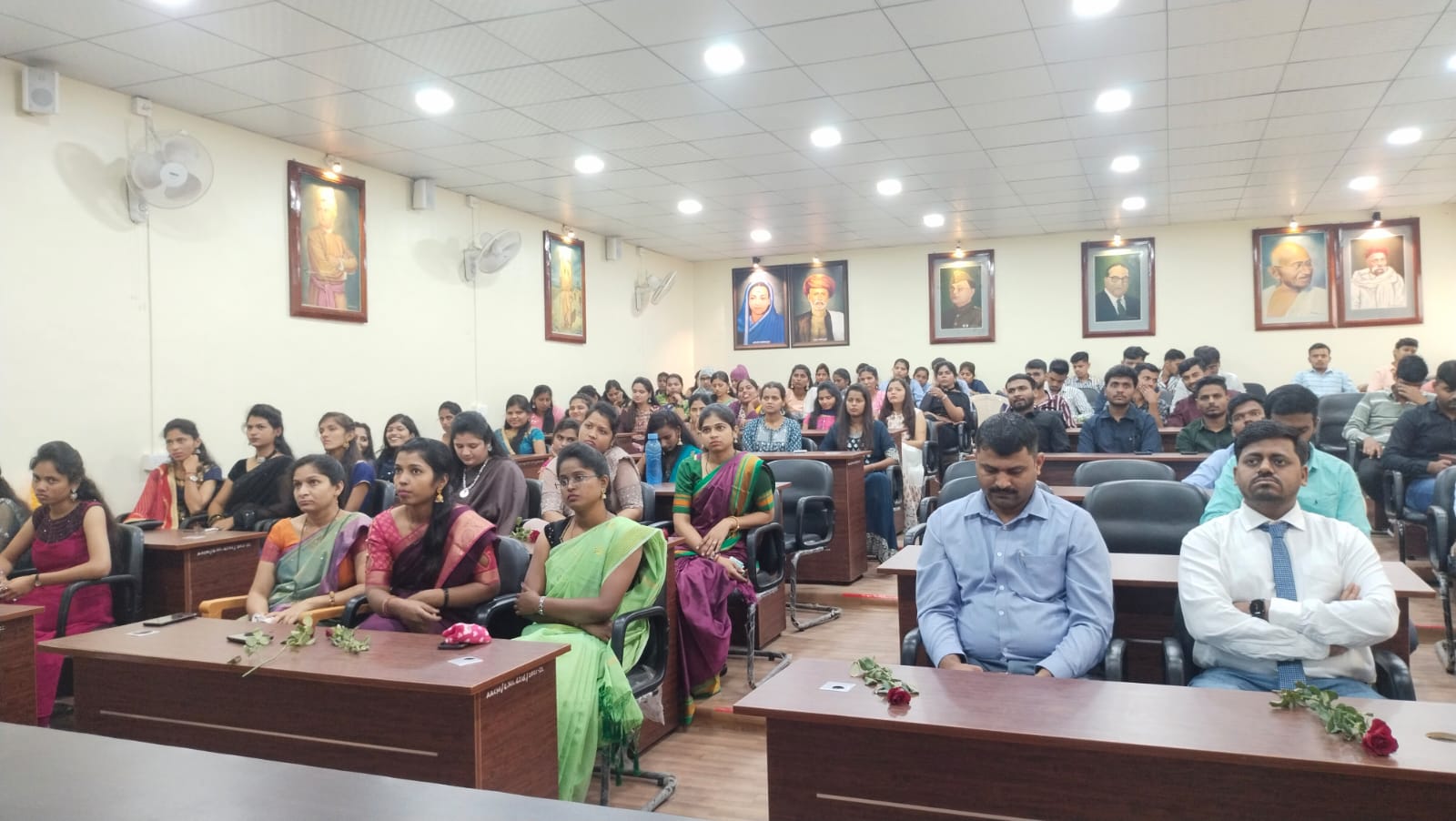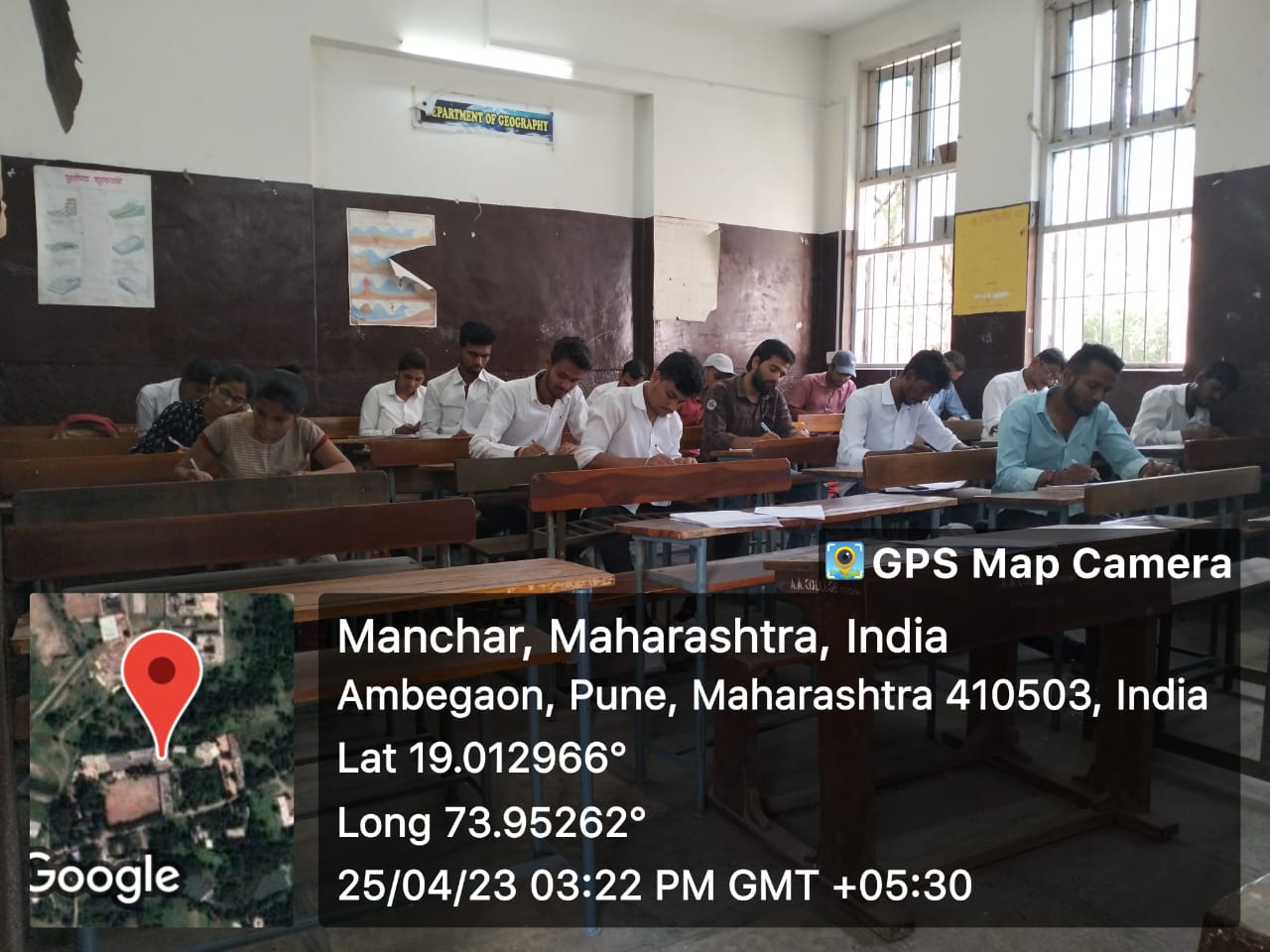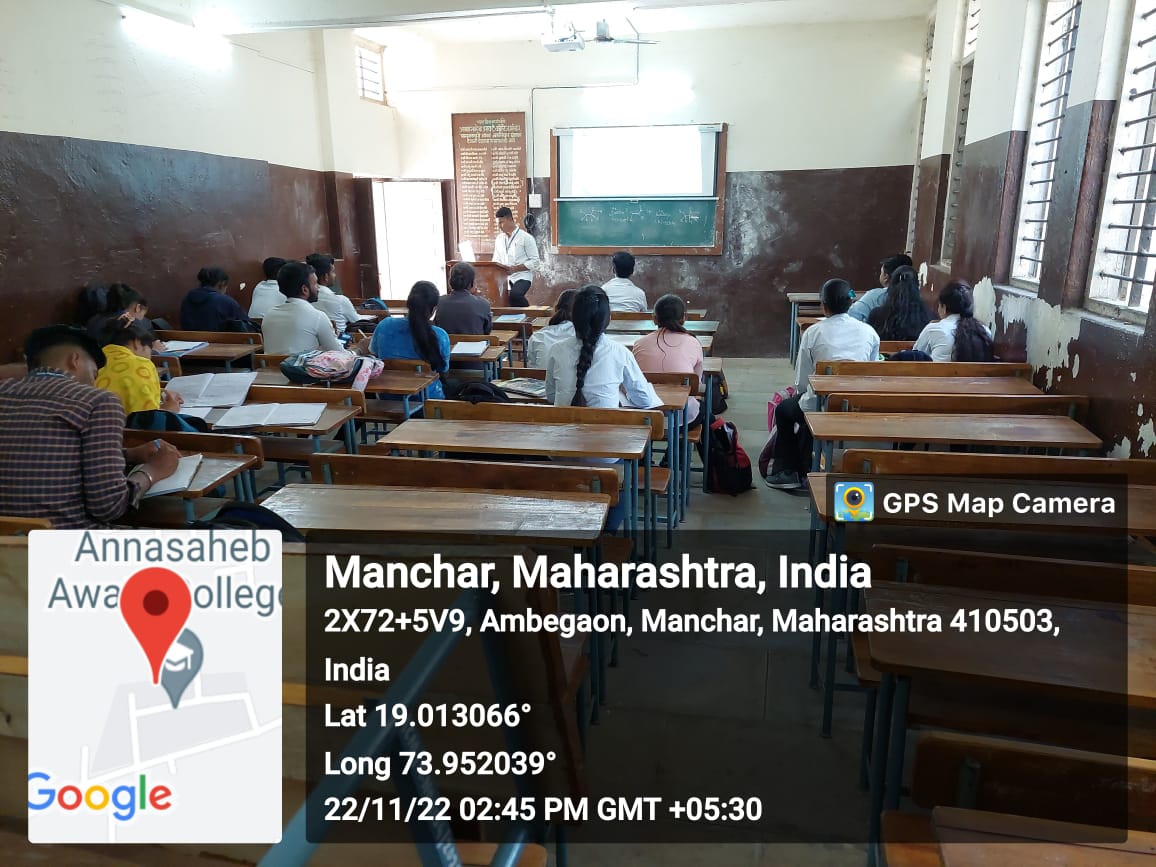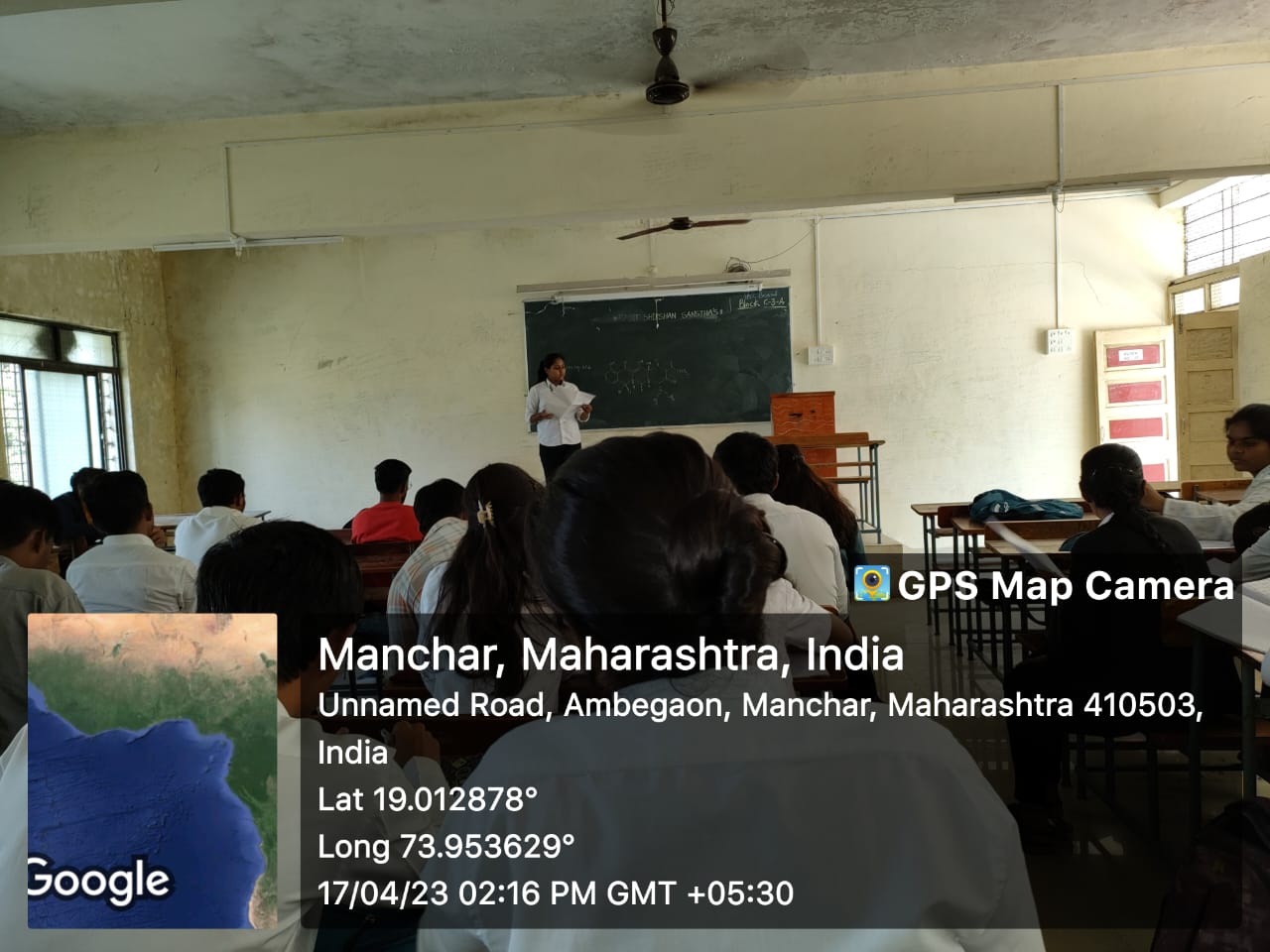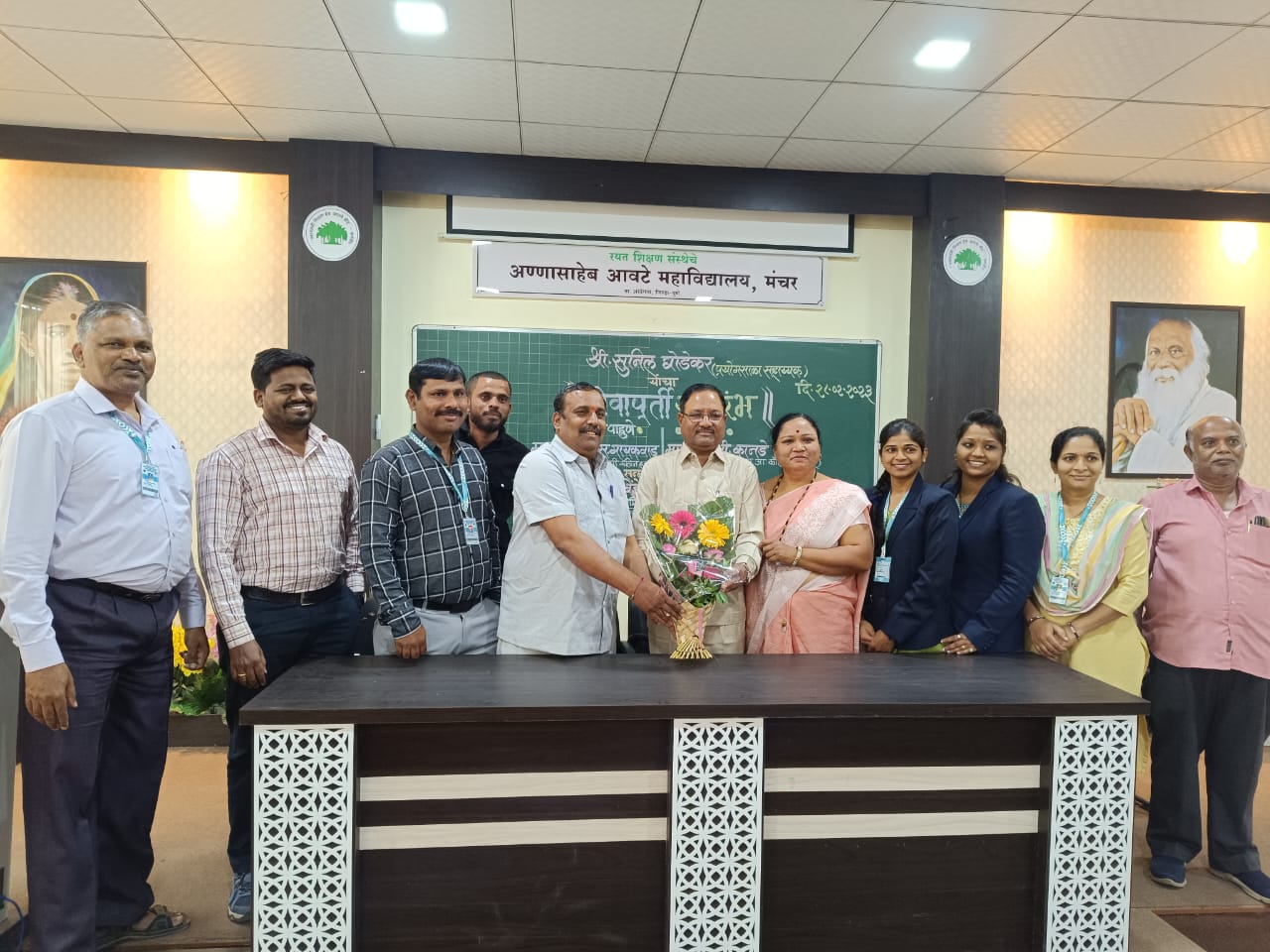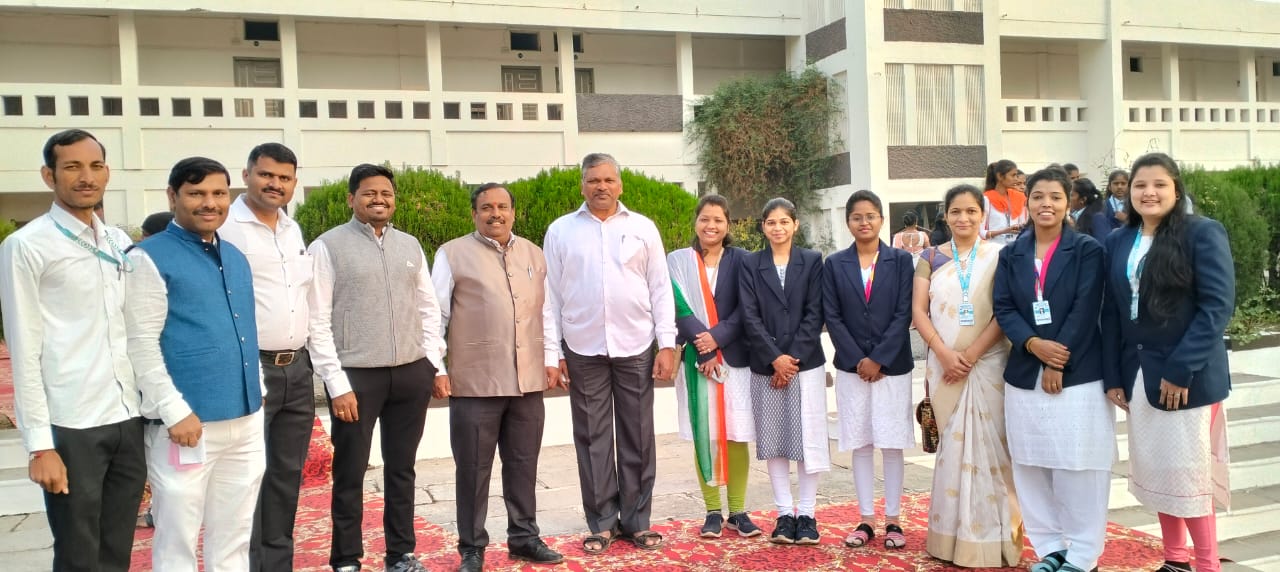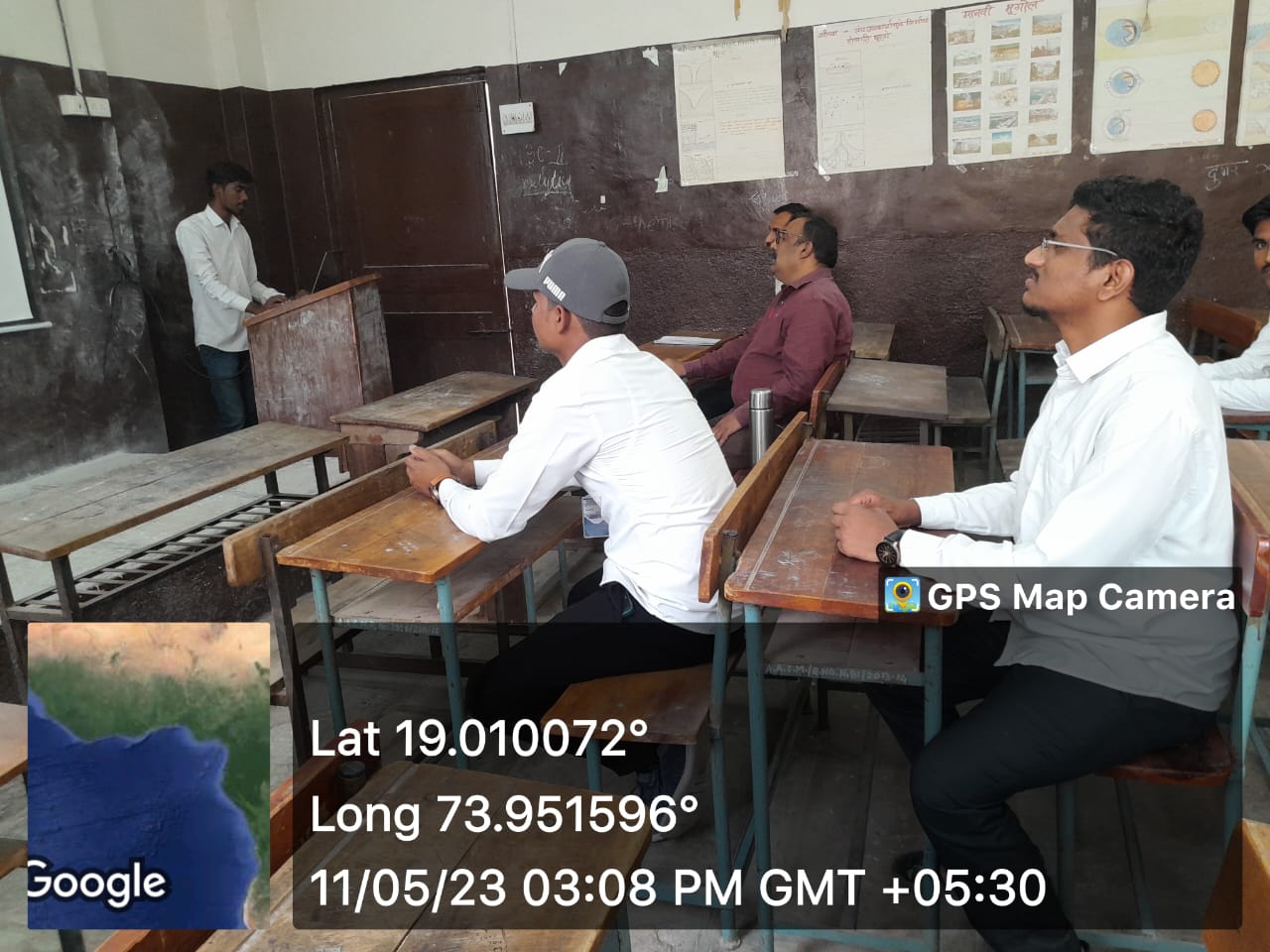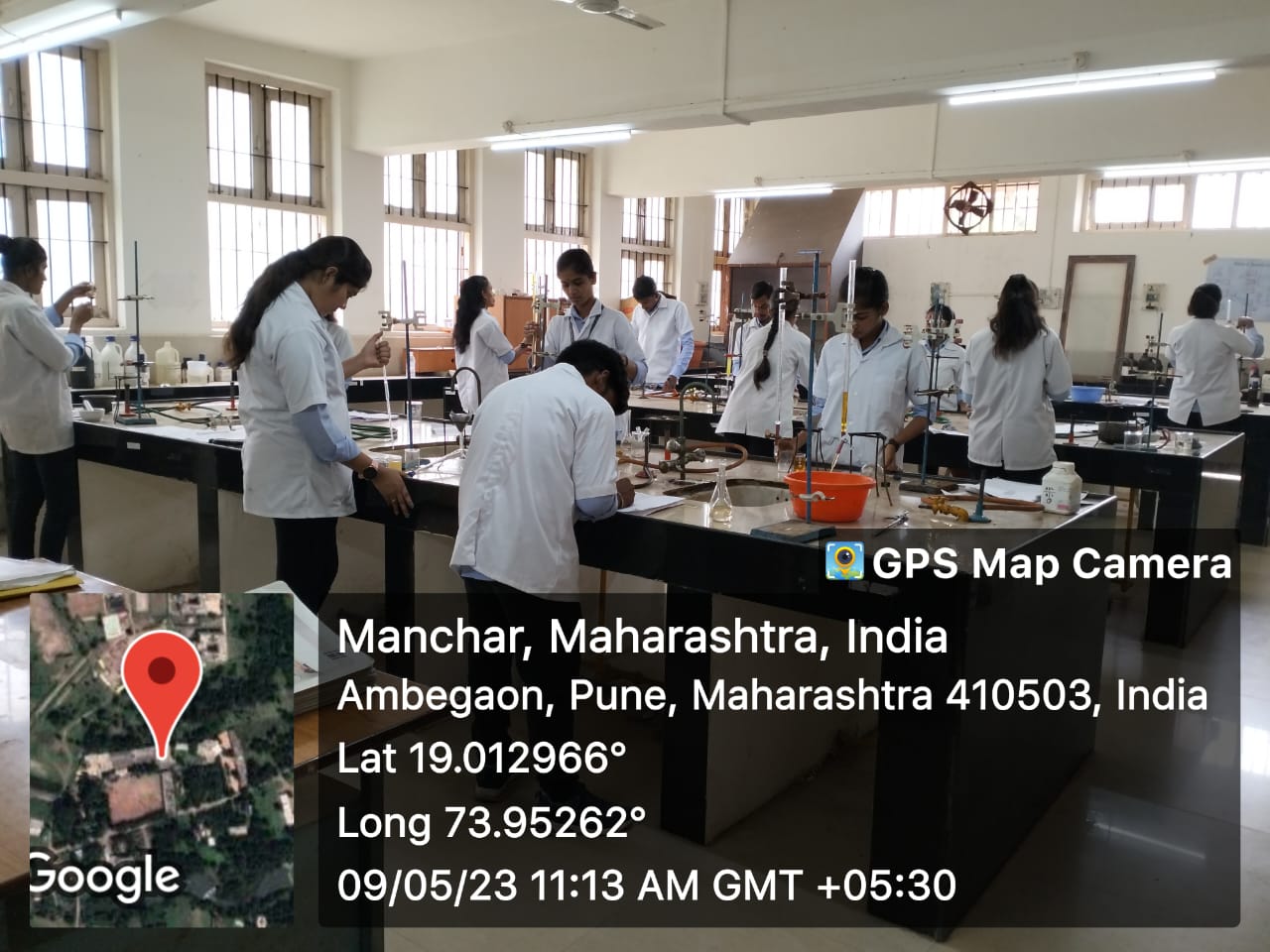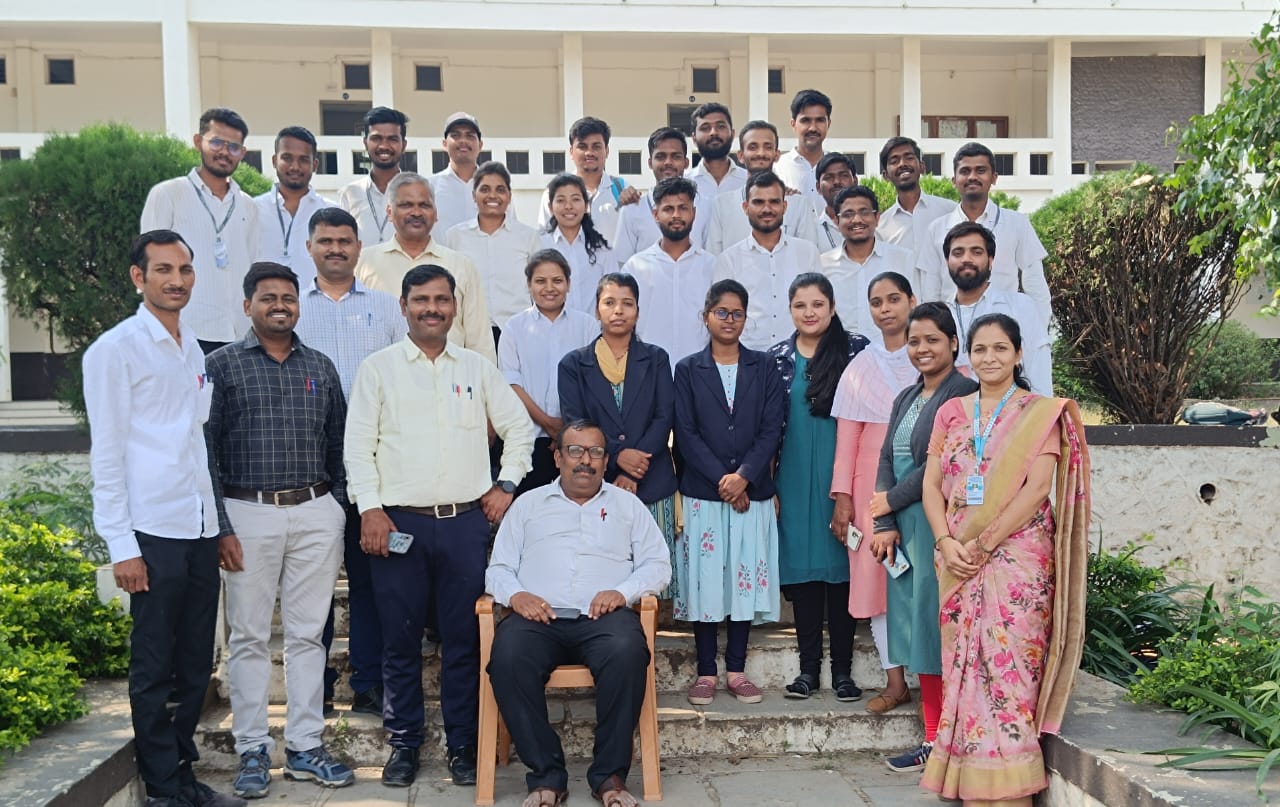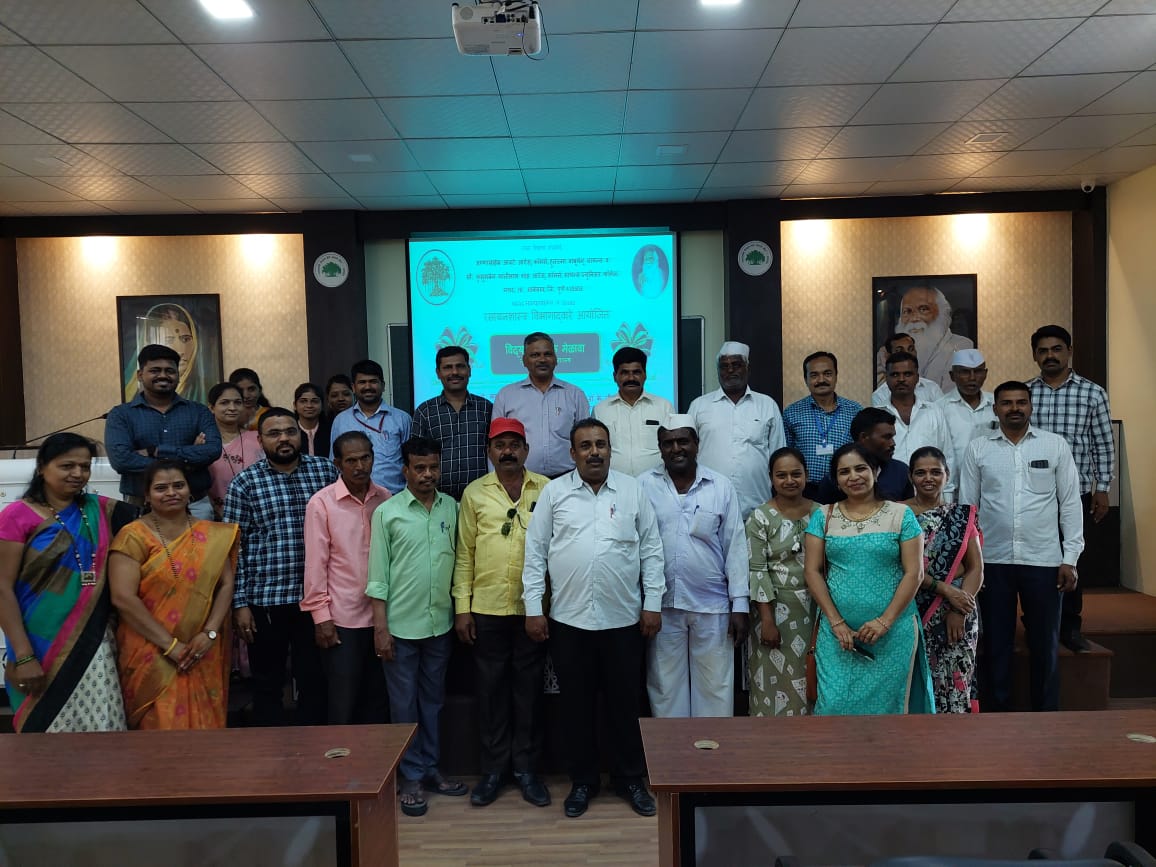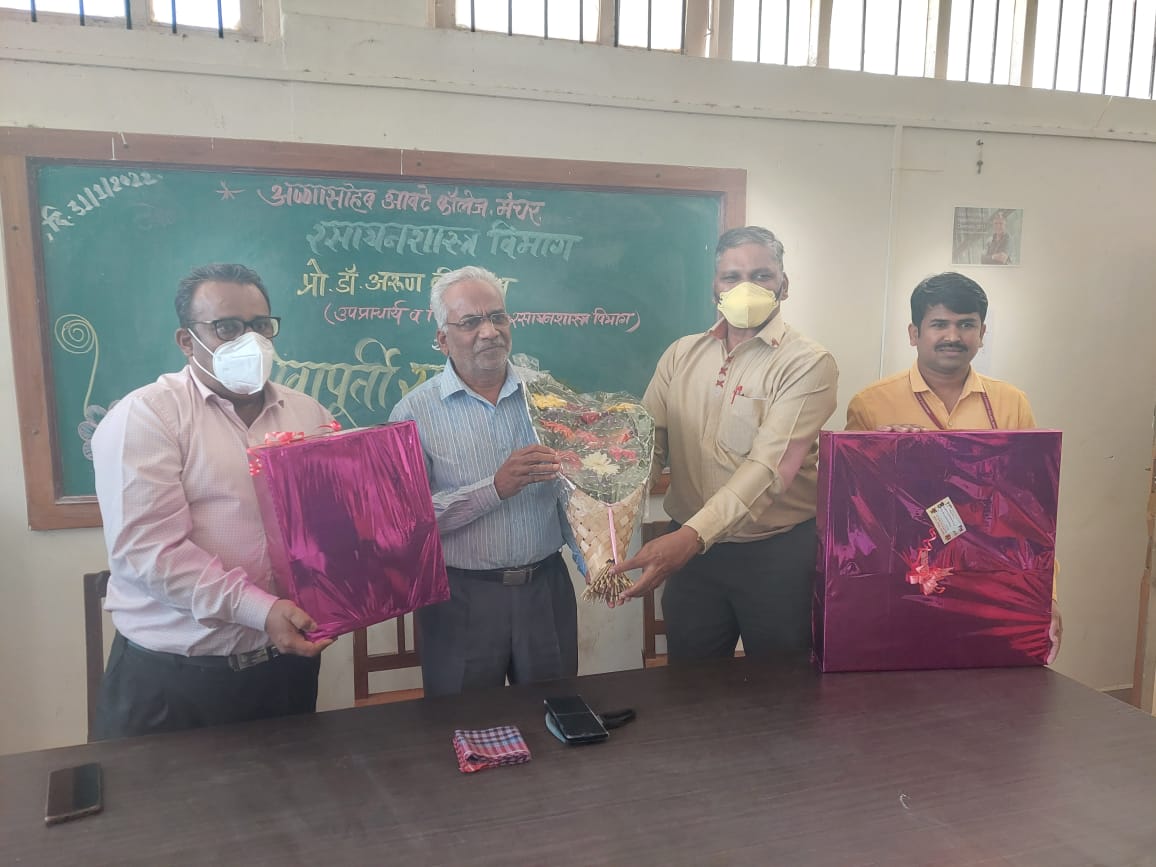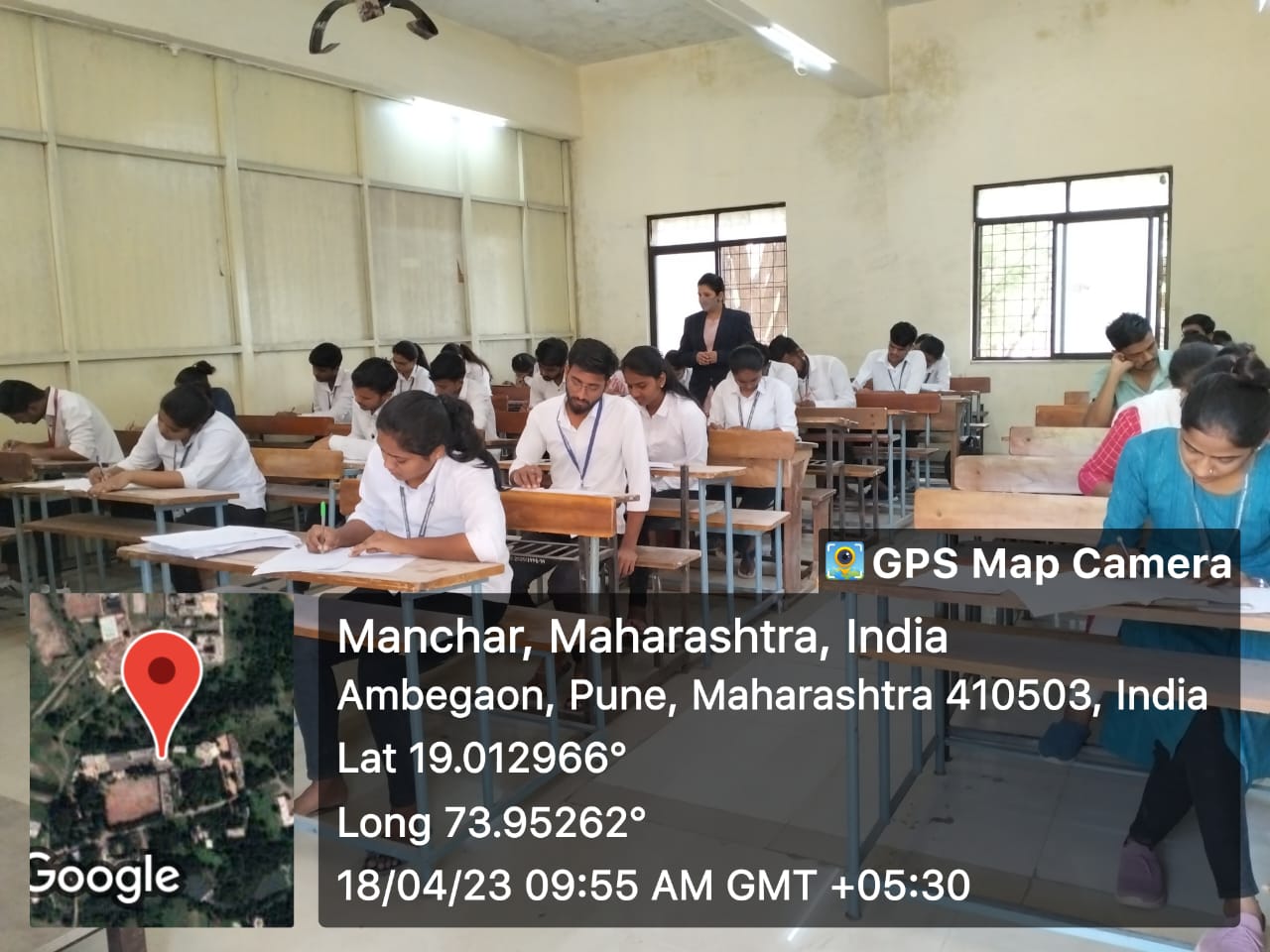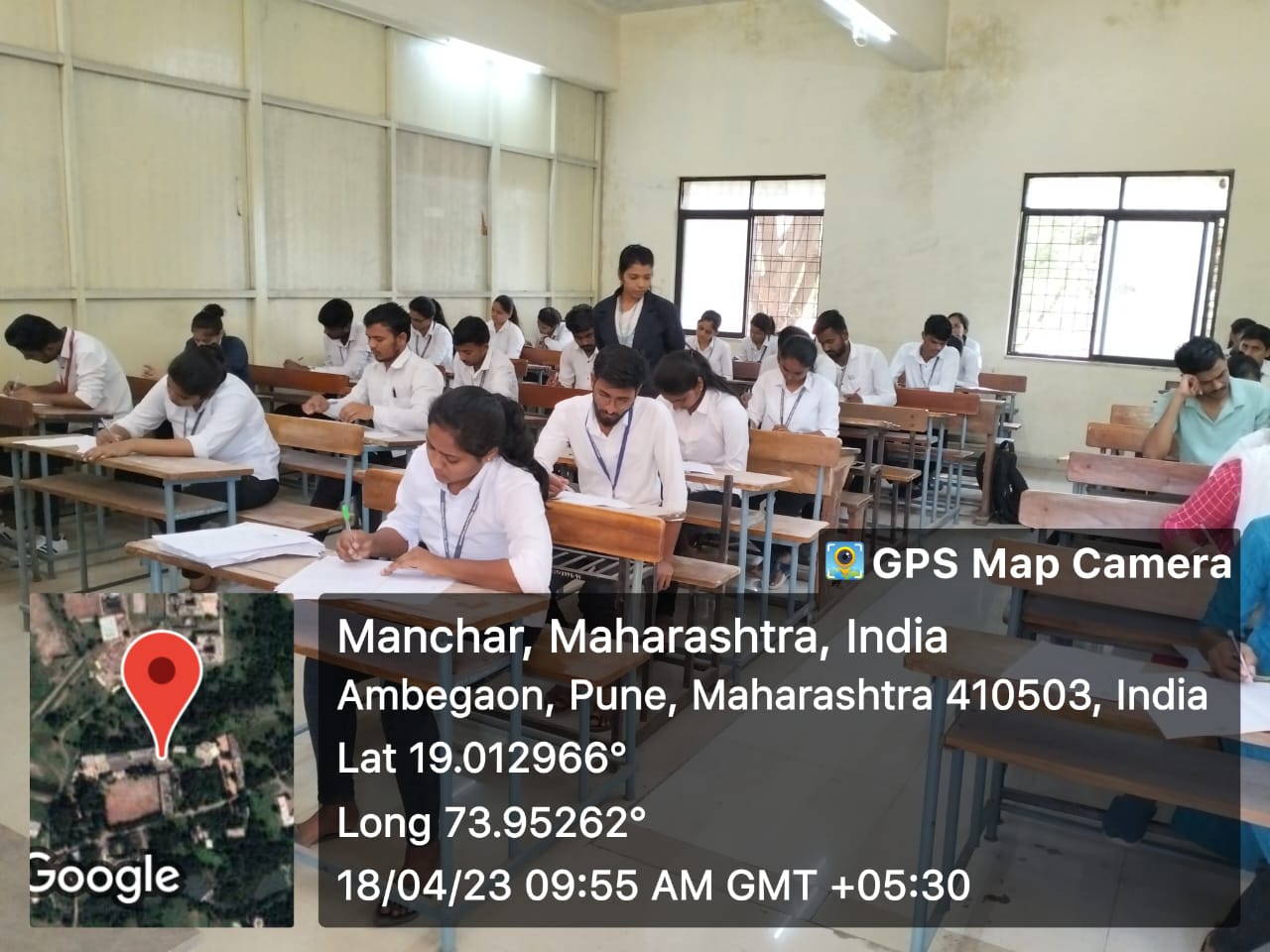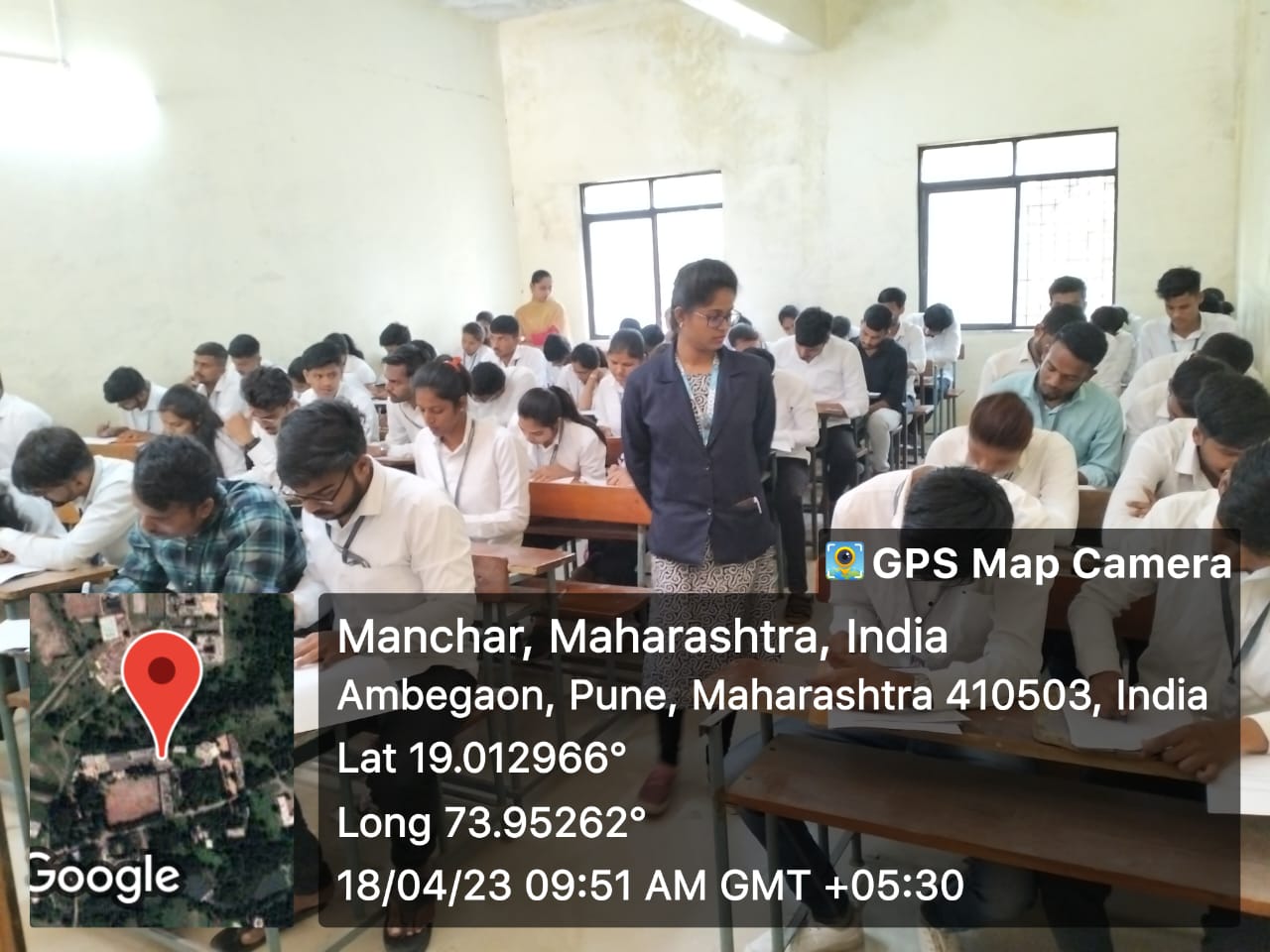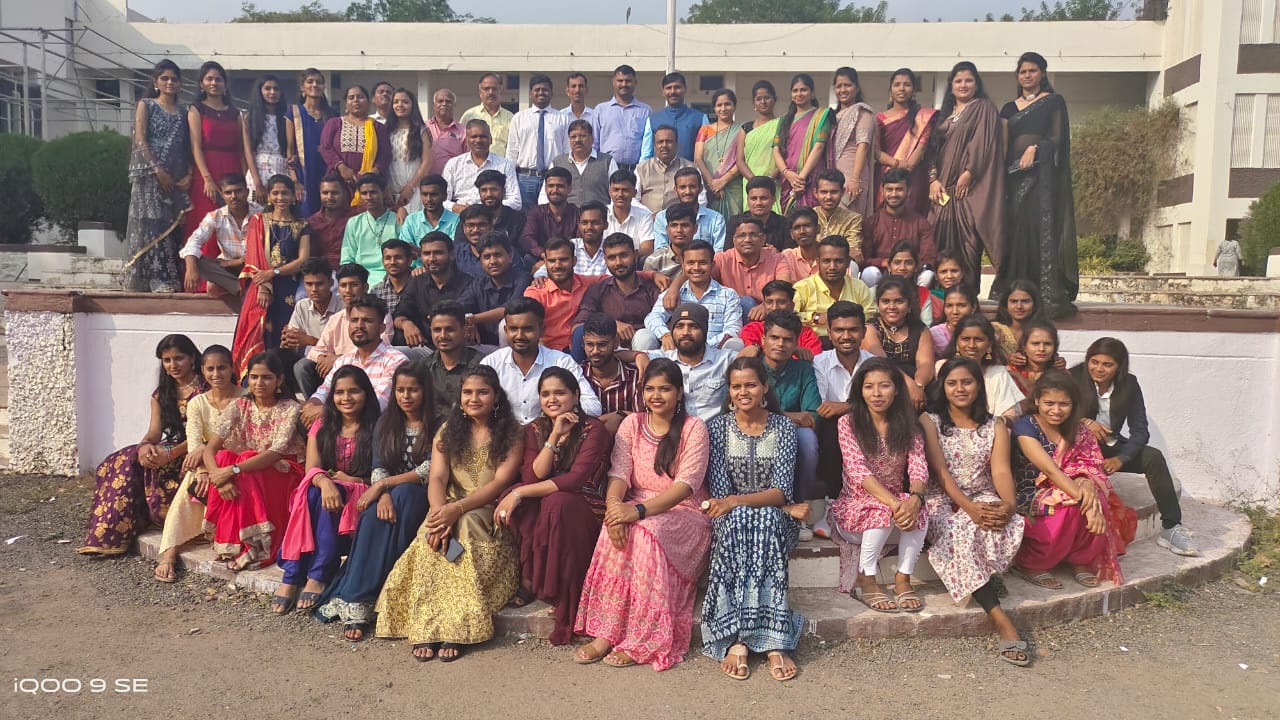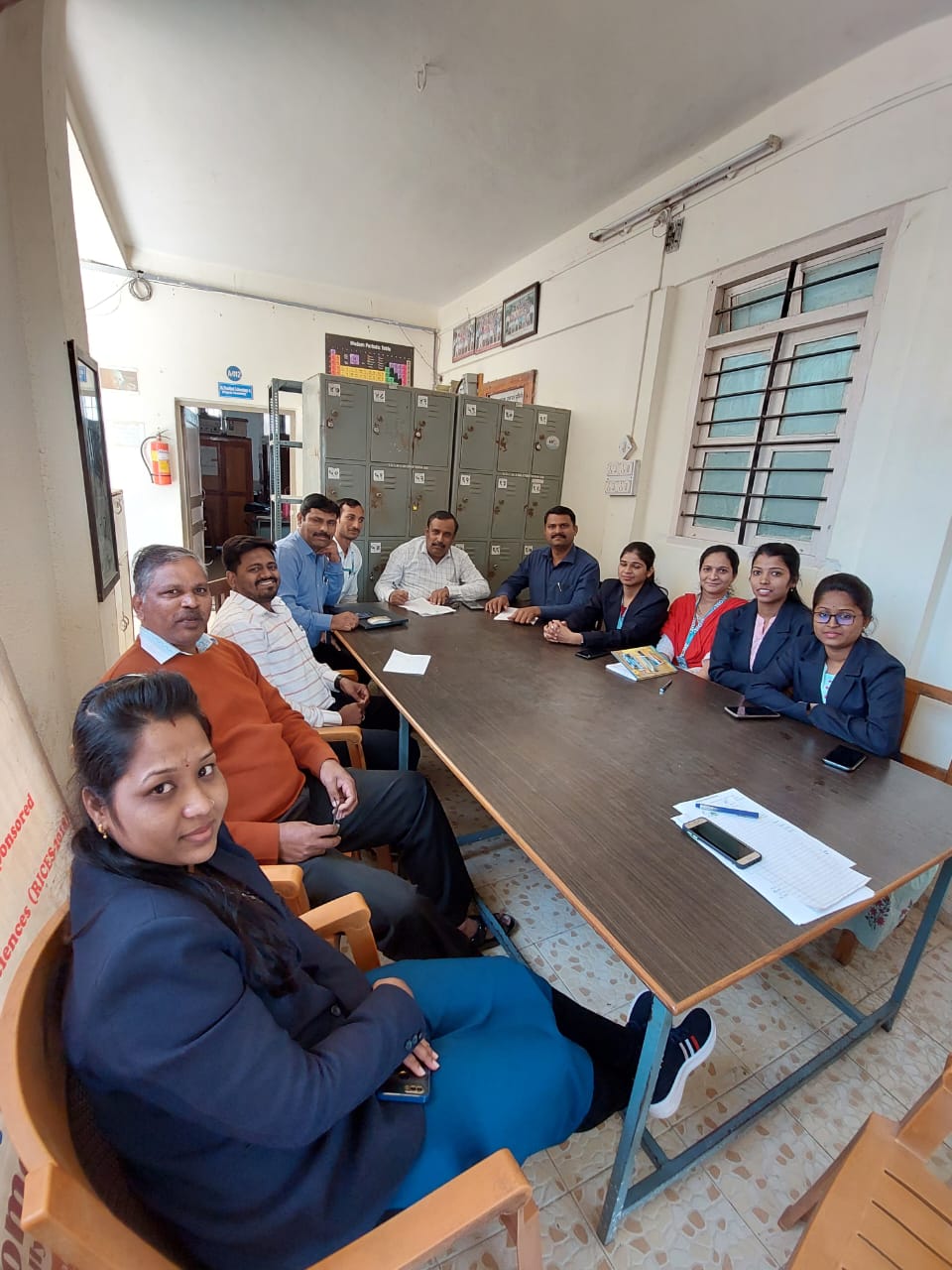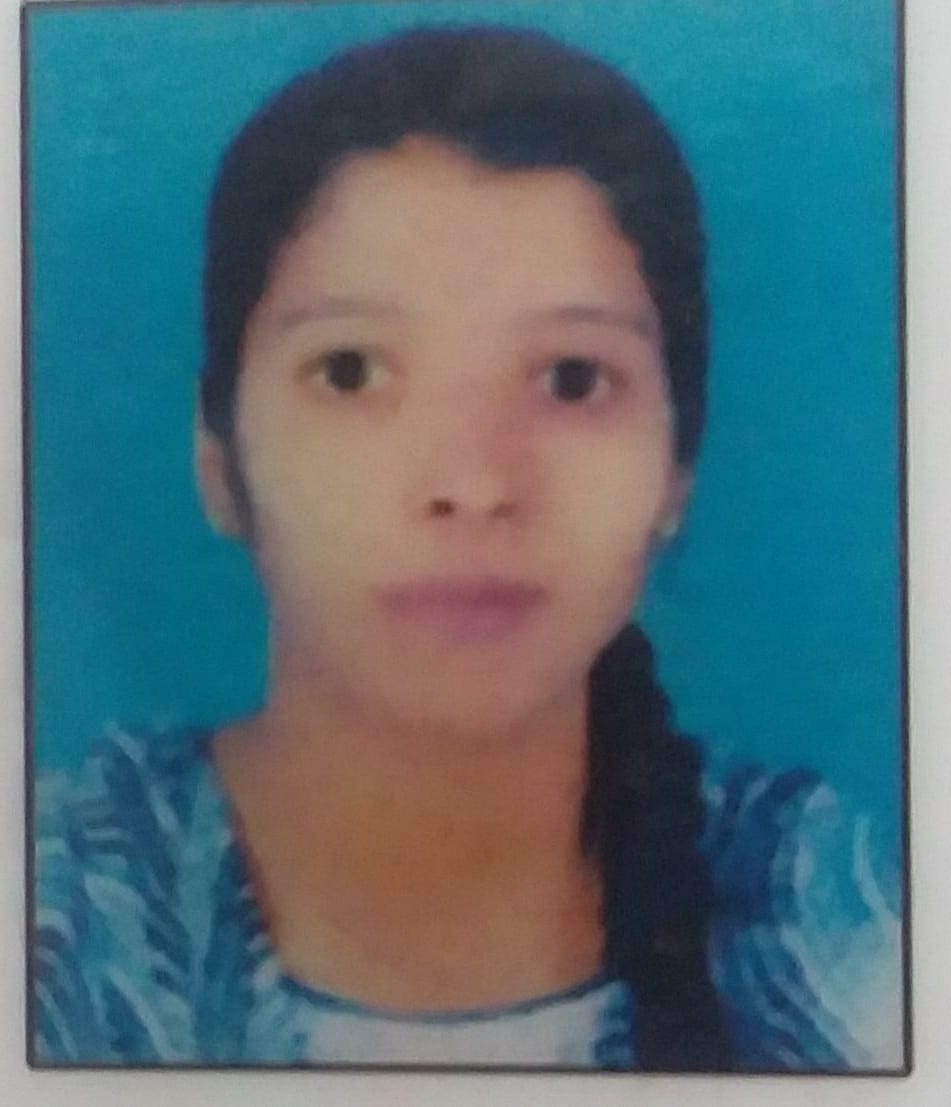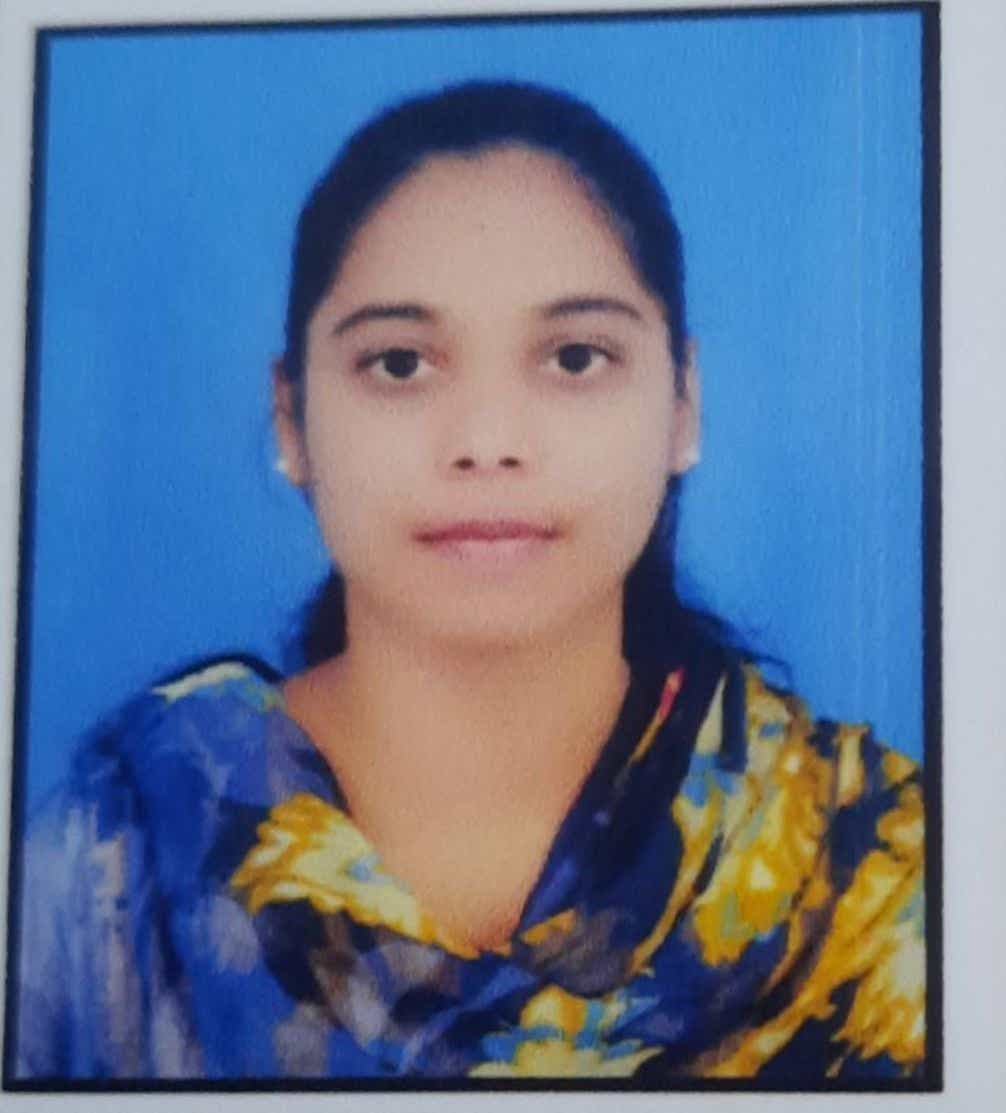Department Of Chemistry
Vision:
- To achieve excellence in Quality education, research and training in the field of Chemistry.
- Simulation of scientific curiosity and general intellectual objectives aimed at producing matured and conscious citizens for human success and development.
- Integral formation with scientific skills and social responsibilities.
Mission
- Pursue postgraduate and undergraduate teaching and research programs to develop the next generation of academic, industrial and laboratory chemists who will contribute in national development by applying beneficial knowledge, innovative skills and creative perception.
- To achieve academic excellence in basic and applied aspects of chemical sciences.
- To impart basic and advanced education to students through teaching, learning, research and evaluation.
- To inculcate scientific awareness towards protecting diversity and eco-environmental management of chemical resources for sustainable development to motivate the students to undertake research in basic and applied trust areas of chemical sciences.
Chemistry Department
Dr. Kale A.A.
Designation : HoD & Associate Professor
Qualification : M.Sc. B.Ed. M.Phil. Ph.D. M.B.A.(HR)
Experience :25 Years
Email : [email protected]
Mobile No : 9922753472
Dr. Misal S.B.
Designation : Assistant Professor
Qualification : M.Sc.,M.Phil, Ph.D.
Experience :32 years
Email : [email protected]
Mobile No : 8983715545
Mr. Ramesh Balasaheb Gawade
Designation : Assistant Professor
Qualification : M.Sc. NET, GATE
Experience :13
Email : [email protected]
Mobile No : 9960521618
Dr. Santosh Tukaram Shinde
Designation : Assistant Professor
Qualification : M.Sc.(Organic Chemistry), NET - JRF (CSIR), Ph.D.
Experience :11 Years
Email : [email protected]
Mobile No : 9762952451
Dr. Arun Karansing Valvi
Designation : Assistant Professor
Qualification : M.Sc. (Organic Chemistry), Ph.D (Science)
Experience :5 Years & 2 Months
Email : [email protected]
Mobile No : 9921284548
Miss. Gate Pooja Prabhakar
Designation : Assistant Professor
Qualification : M.Sc. Organic Chemistry
Experience :6 Month
Email : [email protected]
Mobile No : 7620630951
Miss. Naikodi Bhagyashree Jagannath
Designation : Assistant Professor
Qualification : M.Sc. Analytical chemistry
Experience :6 month
Email : [email protected]
Mobile No : 7558328476
Miss. M.K.Qazi
Designation : Assistant Professor
Qualification : M.sc (Analytical Chemistry)
Experience :2 Months
Email : [email protected]
Mobile No : 9359752058
Miss. Indore P.P.
Designation : Assistant Professor
Qualification : M.Sc
Experience :5 Years.
Email : [email protected]
Mobile No : 9096917248
| # | Course | Eligibility | Period | Type |
|---|---|---|---|---|
| 1 | B.Sc. | H.S.C | 3 Years | Academic |
|
Academic Year |
Programme Name |
Number of students
appeared in the final year examination |
Number of students
passed in final year examination |
Percentage % |
|
2017-18 |
B.Sc |
63 |
45 |
71.43 |
|
M. Sc |
22 |
20 |
90.90 |
|
|
2018-19 |
B. Sc |
54 |
53 |
98.14 |
|
M. Sc |
28 |
23 |
85.71 |
|
|
2019-20 |
B.Sc |
50 |
48 |
96 Univ. 83.95 |
|
M. Sc |
41 |
38 |
92.68 Univ. 94.66 |
|
|
2020-21 |
B.Sc |
54 |
54 |
100 |
|
M. Sc |
66 |
66 |
100 |
|
|
2021-22 |
B.Sc |
50 |
50 |
100 |
|
M. Sc |
72 |
64 |
88.66 |
|
|
2022-23 |
B.Sc |
38 |
- |
- |
|
M. Sc |
73 |
- |
- |
|
Name of the Course |
Class |
Year of offering / study |
Period (from date - to date) |
Duration of course |
Number of students enrolled in the year |
Number of Students completing the course in the year |
|
|
Short
Term Course on Research Methodology |
M.Sc-II |
2017-2018 |
01-08-2017 to 31-03-2018 |
3 Month |
22 |
22 |
|
|
Certificate
Course on Instrumental Methods in Chemical Analysis |
T.Y.B.Sc |
2018-2019 |
03-12-2018 to 13-02-2019 |
60 Lecture |
21 |
21 |
|
|
Short
Term Course on Research Methodology |
M.Sc–II |
2018-2019 |
01-12-2019 to 31-03-2019 |
3 months |
28 |
28 |
|
|
Certificate
Course on Dairy Science |
F.Y.B.Sc |
2019-2020 |
31-08-2019 to 24-02-2020 |
3 months |
37 |
37 |
|
|
Certificate
Course on Dairy Chemistry |
F.Y.B.Sc |
2021-2022 |
01-09-2021 to 01-07-2022 |
3 months |
18 |
18 |
|
|
Certificate
Course on Dairy Chemistry |
F.Y.B.Sc |
2022-2023 |
25-03-2023 to 13-05-2023 |
3 months |
15 |
12 |
|
|
Short
Term Course on Instrumental Analysis |
T.Y.B.Sc |
2022-2023 |
15-01-2023 to 15-03-2023 |
3 months |
38 |
38 |
|
Year |
Name of Alumni |
Designation |
Name of Employer |
|
2021-22 |
Auti Rushikesh
Popat |
Research
Associate |
Oat & Oil
India Laboratories Pvt Ltd. |
|
Bhorhade Megha |
Junior Execute |
Proex Pharma Pvt
Ltd |
|
|
Said Ashwini
Sudhakar |
Trainee- Chemist |
Intonation Research
Laboratories |
|
|
Misbah Qazi Khalid |
Assistant
Professor |
Annasaheb Awate
College Manchar |
|
|
Navale Pooja Bhaguji |
Trainee- Chemist |
Tata Auto comp
System Ltd |
|
|
Kadhane Aksha
Vitthal |
|
Q CONNEQT business solution ltd |
|
|
2020-21 |
Bhor Vikrant Tanhaji |
Chemist |
GPC Life Science, Pune. |
|
Bhosale Sahebrao Pandurang |
Research Associate |
Jubilant Biosys Limited. Noida,
Uttarpradesh |
|
|
Hinge Pratiksha Dattatray |
Research Associate |
Jubilant Biosys Limited. Noida,
Uttarpradesh |
|
|
Gaikwad Omkar Sambhaji |
Junior Execute |
Cipla Ltd. |
|
|
Zalte Gopinath Vishwanath |
Research Associate |
Jubilant Biosys
Limited. Noida, Uttarpradesh |
|
|
Akshay Ashok Bhavar |
Research Associate |
Jubilant Biosys
Limited. Noida, Uttarpradesh |
|
|
Ganesh Sambhaji Jadhav |
Scientist –Med chem |
AURIGENE Pharmaceutical |
|
|
Gaikwad Ashwini
Santosh |
Research
Associate |
Wockhardt
Research Centre |
|
|
Khambe Narendra Yuvraj |
Research Associate |
Aurobindo Pharma Limited Research Centre II |
|
|
Gade Shivam Ramnath |
Junior Research
Associate |
ARAGEN Pharmaceuticals Pvt Ltd |
|
|
Jadhav Pratiksha Sambhaji |
Jr. Executive ARL |
Itrace Pharmaceutical Solutions Private Ltd. |
|
|
2019-20 |
Chikhale Swapnil Laxman |
Chemist |
A.P.P.L Plastic engineer Pvt Ltd |
|
Gadage Santosh Gorakhanath |
Chemist |
A.P.P.L Plastic engineer Pvt Ltd |
|
|
Shinde Gauri Kaluram |
Assistant
Professor |
Government polytechnic college awsari kd |
|
|
2018-19 |
Pokharkhar
sarita dattatray |
Assistant
Professor |
D.G. Walse Patil
College , Pargaon |
|
Tambade ravina
shivaji |
Assistant
Professor |
Dilip Walse Patil Arts, Commerce & Science
College Nimgaon sava |
|
|
Shinde Dipali Babaji |
Assistant
Professor |
Dilip Walse Patil Arts, Commerce & Science
College Nimgaon sava |
|
|
2017-18 |
Bhagwat Neha
suryakant |
Assistant
Professor |
D.G. Walse Patil
College, Pargaon |
|
Indore Pranali Pandharinath |
Assistant
Professor |
Annasaheb
Awate College Manchar |
|
|
Nikam Pooja Suresh |
Assistant
Professor |
D.G. Walse Patil College, Pargaon |
|
|
Pokharkhar
Sagar Gulab |
Chemist |
Morde
Foods, Manchar |
Research Activities 2017-2023
Conferences Workshops Seminars Chemistry
|
Year |
Name
of the Activity |
Details |
Number
of Beneficiaries |
|
2021-22 |
Science
Aptitude Test |
Base
on General chemistry (Date-20-10-21) |
39 |
|
Wallpaper
Activity |
Based
on Nobel Prize in Chemistry (Date-25/04/2022) |
54 |
|
|
Field
Visit |
Parag
Milk Private Limited (Date-26-04-22) Class-T.Y.B.Sc |
52 |
|
|
Alumini
Meet |
MSc
II Organic + Analytical Date-05-05-22 |
71 |
|
|
2019-20 |
Welcome
Function |
M.Sc.
I Date-27/08/2019 |
74 |
|
Field
Visit |
T.Y.B.Sc |
40 |
|
|
Field
Visit |
Aurangabad
Paithan Date-18-02-20,
T.Y.B.Sc |
48 |
|
|
Guest
Lecture |
MSc
I Date-02-02-20 |
75 |
|
|
Guest
Lecture |
M.Sc.II
CHO-453 Date-11-03-2020 |
50 |
|
|
Guest
Lecture |
M
Sc II CHO-453 Date-31-03-2019 |
50 |
|
|
Guest
Lecture |
M.Sc.II
CHO-453 Date-16-03-2019 |
50 |
|
|
Guest
Lecture |
M.Sc.I
CHP-110 Date-28-09-2019 |
41 |
|
|
Guest
Lecture |
M.Sc
.II CHO-352 Date-20-09-2019 |
50 |
|
|
Guest
Lecture |
M.Sc
II CHO-352 Date-26-09-2019 |
50 |
|
|
Guest
Lecture |
M.Sc.I
CHO-150 Date-28-09-2019 |
72 |
|
|
Guest
Lecture |
M.Sc.I
CHO-150 Date-04-10-2019 |
72 |
|
|
Guest
Lecture |
M.Sc.II
CHO-351 Date-06-10-2019 |
64 |
|
|
Guest
Lecture |
M.Sc.I
CHI-130 Date-18-09-2019 |
72 |
|
|
Guest
Lecture |
M.Sc.I CHP-110 Date-20-10-19 |
72 |
|
|
Guest
Lecture |
M.Sc.I CHP-110 Date-20-10-19 |
72 |
|
|
2018-19 |
ICT
Lecture |
Industrial Chemistry: A
Process of Manufacturing of Sugar from Sugarcane B-Pharmaceutical activity
and uses of Drugs Date-23-01-2019,
Class-T.Y.BSc |
54 |
|
Question
Answer Session activity |
Dairy Chemistry,
Carbohydrate, Vitamins, etc |
54 |
|
|
Field
Visit |
Morde
Food Private Ltd. Date-08-01-2019
Class-T.Y.BSc |
45 |
|
|
Field
Visit |
Parag
Milk Food Pvt.ltd. Date-26-12-2018,
Class-T.Y.B.Sc |
52 |
|
|
Quiz
Competition |
Important of raw Material
for Soap, Dye and Paint, Date-15/02/2019 |
50 |
|
|
Guest
Lecture |
M.Sc
I –CHO-250 Date-16-04-19 |
48 |
|
|
Guest
Lecture |
M.Sc
I CHO-250 Date-18-04-2019 |
48 |
|
|
Guest
Lecture |
M.Sc.I CHP-110 Date-10-09-2018 |
48 |
|
|
Guest
Lecture |
M.Sc.I CHP-110 Date-01-10-2018 |
48 |
|
|
Guest
Lecture |
M.Sc.II CHO-352 Date-20-10-18 |
41 |
|
|
Guest
Lecture |
M.Sc.II CHO-350 Date-20-10-18 |
41 |
|
|
2017-18 |
Field
Visit |
Innovassynth
technology ISt Pvt. Ltd Class-T.Y.BSc
|
27 |
|
Field
Visit |
C-MET
Pune Date-21-09-2017,
Class-MSc-II |
54 |
|
|
Alumini
Meet |
T.Y.BSc,
Date-17-09-2017 |
33 |
|
|
Alumini
Meet |
T.Y.BSc,
Date-22-08-2017 |
17 |
|
|
Guest
Lecture |
M.Sc.I CHO-250, Date-21-03-2018 |
30 |
|
|
Guest
Lecture |
M.Sc.I CHI-230, Date-13-03-2018 |
30 |
|
|
Guest
Lecture |
M.Sc.II
CHO-453 Date-20-03-18 |
22 |
|
|
Guest
Lecture |
M.Sc.I CHO-250 Date-24-03-2018 |
30 |
Photo Gallery
